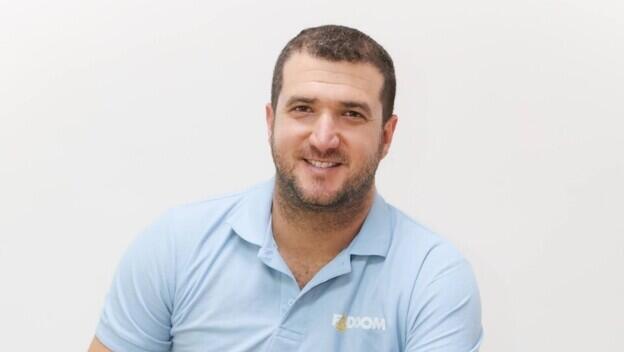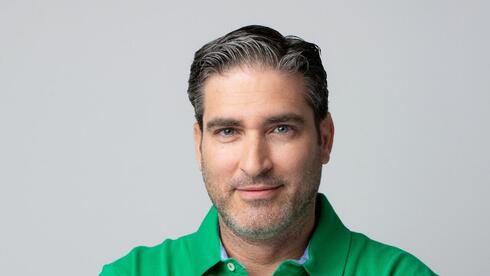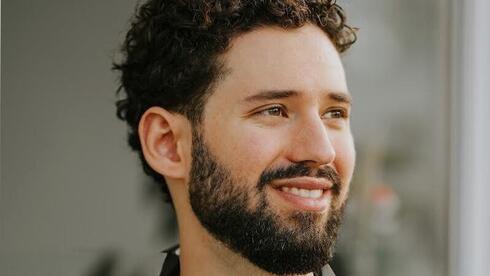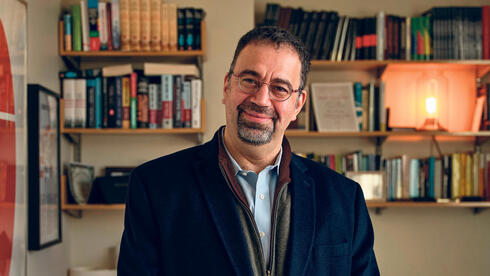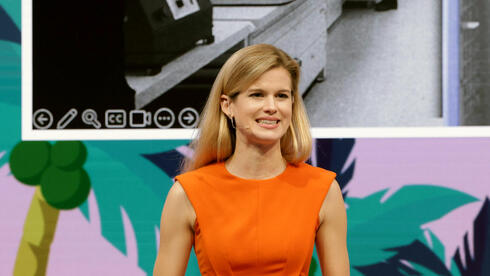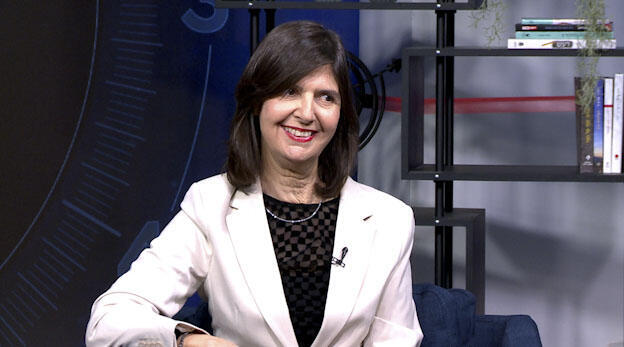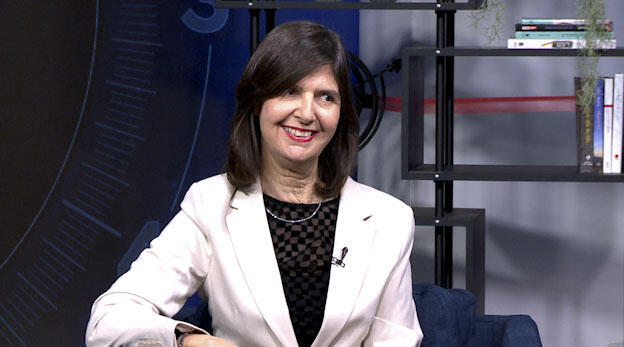
Six After War
"Entrepreneurs who were seemingly competitors joined forces for the benefit of civilians, casualties or abductees"
As part of Calcalist and Poalim Tech's series of online interviews "Six After War", Prof. Dafna Kariv, an expert in management and entrepreneurship from Reichman University, spoke with Poalim Tech CEO Michal Kissos Hertzog about entrepreneurship, high-tech and business resilience
Flexibility creates resilience - this is one of the conclusions from a study conducted by Prof. Dafna Kariv, an expert in management and entrepreneurship from the Adelson School at Reichman University, which dealt with the crisis of entrepreneurs during the Coronavirus pandemic period, and is particularly relevant due to the ongoing war. As part of Calcalist and Poalim Tech's series of interviews, "Six After War", Kariv spoke with Poalim Tech CEO Michal Kissos Hertzog about entrepreneurship, high-tech and business resilience.
In recent years, the high-tech industry has suffered from a series of crises - the Coronavirus pandemic, the macroeconomic crisis, judicial reform, and now war. How do we create flexibility in such a situation and how do we get out of the crisis?
"When I started the research, the Coronavirus pandemic seemed to me to be the ultimate crisis, but unfortunately I was mistaken," says Prof. Kariv. "We Israeli entrepreneurs have a secret recipe that cannot be copied and that is the feeling of being part of a community. It goes beyond flexibility and beyond resilience. We found a very high psychological capital in entrepreneurs. One of the interesting things we saw in the pandemic, which continues today, is that on the one hand the entrepreneurs carry a very heavy burden to the point of panic, and on the other hand we saw very high levels of human capital.
"We are used to talking about human capital as resilience, which is one component but not the only one. What is interesting about Israeli entrepreneurs is that the other three components are also very high. The first component is hope, which is the vision I have and where I want to go. The second component is self-sufficiency. Israeli entrepreneurs have a high level of feeling that they are able to get where they want because they have enough knowledge, friends and networking. The third element is optimism - a sense of joy in doing and a desire to act. All of these together constitute the psychological capital of Israeli entrepreneurs and they have very high amounts of it and this somewhat neutralizes the high pressures and is a significant advantage."
And do you see it now in wartime? How do you explain that?
"Today we see that the psychological capital and optimism are stronger. When I talk to entrepreneurs, they tell me, 'The situation is difficult and we are traumatized, but it will be fine.' Today, 'it will be fine' is something that motivates us, it's like a mantra. It’s once again the secret recipe of the entrepreneurs that makes the connection between the great worries, the difficult feelings and the trauma, and the high psychological capital. What connects them is the same feeling that they are in a community. There is a very strong element among the entrepreneurs in the aspect of giving, which greatly increased during the war."
Israeli entrepreneurs are usually soloists. Has this changed?
"I see an increase in the sense of community and we saw this not only in entrepreneurship. On the seventh of October we saw an immediate mobilization and I hear many proud stories that are the antithesis of the thesis of 'dog eat dog' - the old conception regarding entrepreneurship.
"We see entrepreneurs who were seemingly competitors, who joined together for the benefit of a certain project related to civilians, casualties or abductees. We see a mobilization of the big companies in high-tech and finance that do all they can to help startups. We see a breaking of conventions, a breaking of differences and really we are all in it together."
2 View gallery
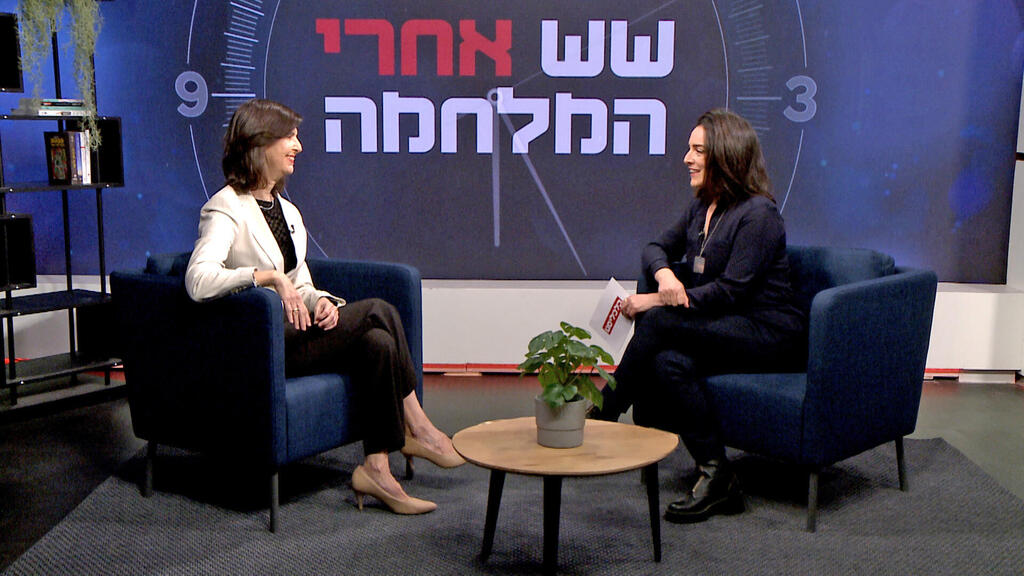

Prof. Dafna Kariv (left) and Poalim Tech CEO Michal Kissos Hetrzog
(Calclaist Studio)
How do you take this asset and save it for the day after?
"I'm going back to the research and I'll explain why I'm optimistic. From the research data, on the one hand, there were great pressures and on the other, very high human capital. We decided to interview people to check if it wasn't just in the questionnaires. We interviewed people and used artificial intelligence to understand the narrative.
"Artificial intelligence checks the frequency of things, the intensities and how I arrange my sentences based on sentiments - positive, negative or neutral. We discovered that when Israelis talk about some kind of crisis, the sentiment is neutral. It should also be noted that when we checked this we were in combat mode in Operation Guardian of the Walls (in 2021). But this is not the case now. October 7 changed this as well, but all the parameters of communality, the feeling of receiving and giving, the feeling of ability and the feeling of resilience, were preserved according to the artificial intelligence, even when we simulated what would happen the day after.
"Artificial intelligence takes what is happening today and imagines what will happen with those people after the war. We received an output that the share of communalism remains high. If we base it on previous studies and what the entrepreneurs say - something in this communalism has always been there, that's what we were founded on, that's how we were built, this is the essence of Israel. It is clear that we need to nurture, talk, keep going and not divide, there is still a lot of work to be done around this, but something in our core and DNA is communal and it has returned to be very strong."
Do you see a difference between female entrepreneurs and male entrepreneurs in the research results?
"Yes. One of my areas of research is female entrepreneurship. This is something that speaks to me a lot and of course I was tempted to quickly run data. You see some differences, but they are reduced in war situations, which means we all get a similar image of an entrepreneur, of an Israeli who wants to give and wants to be part of the community, and yet there is something in the essence of being a man or a woman. For example, we see higher reported levels of resilience in women than in men, and it is interesting that the reported optimism was higher in men.
"We also looked at different sectors, and in sectors like cyber and R&D there is a lot of optimism and there are more men. In sectors that are more related to technology in the field of wellness and commodity - you see much more resilience in women."
On the seventh of October, conceptions were broken at all levels. What changed for you?
"A lot. I thought about the concept of hope, our national anthem Hatikva, which I never thought about and I recognize something very powerful that comes out of the entrepreneurial ecosystem that gives hope, transmits hope, and preserves hope. I thought about what hope means and what kind of connection there is here. I feel very optimistic and have a lot of hope."




